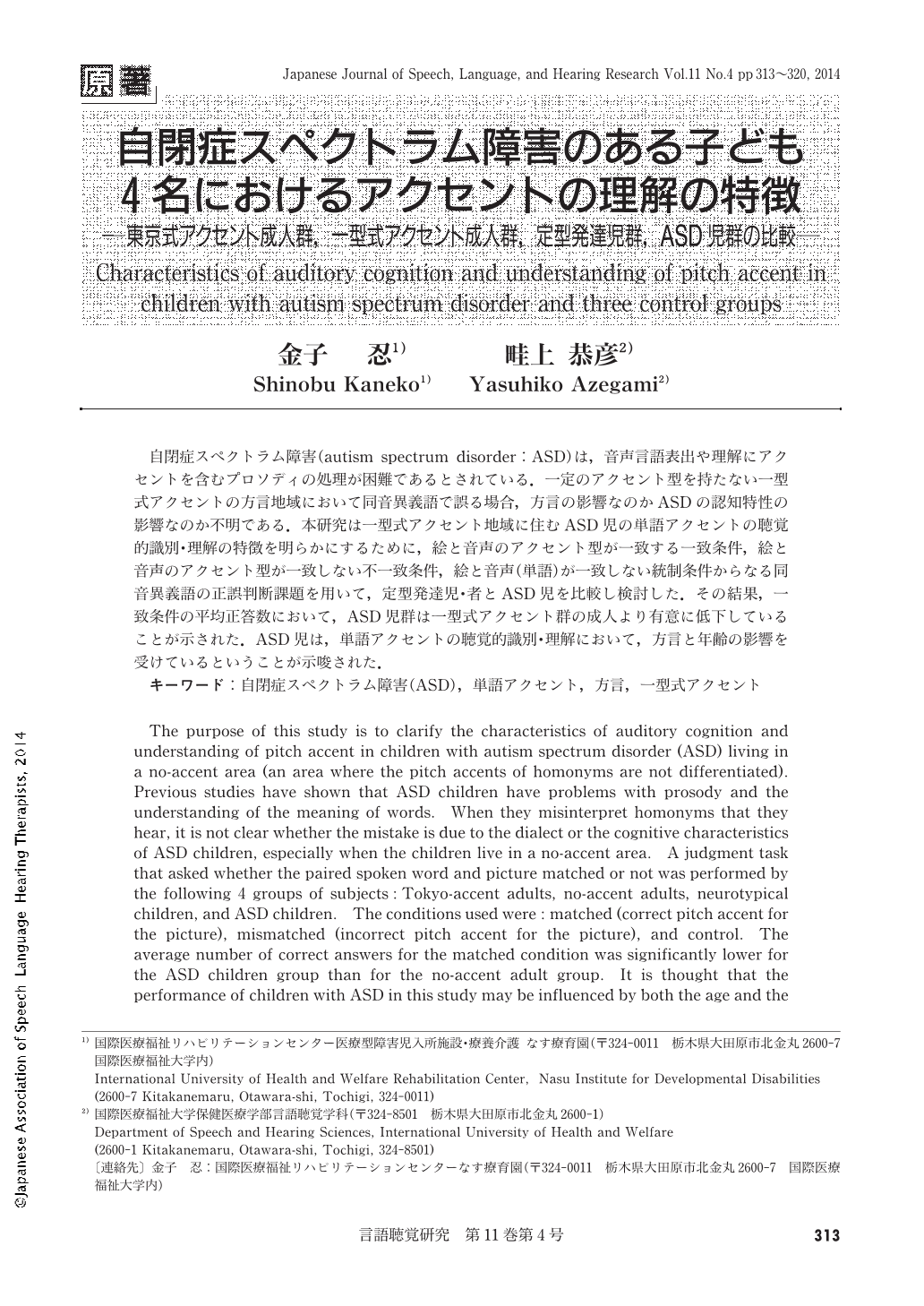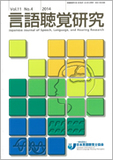Japanese
English
- 有料閲覧
- Abstract 文献概要
- 1ページ目 Look Inside
- 参考文献 Reference
自閉症スペクトラム障害(autism spectrum disorder:ASD)は,音声言語表出や理解にアクセントを含むプロソディの処理が困難であるとされている.一定のアクセント型を持たない一型式アクセントの方言地域において同音異義語で誤る場合,方言の影響なのかASDの認知特性の影響なのか不明である.本研究は一型式アクセント地域に住むASD児の単語アクセントの聴覚的識別・理解の特徴を明らかにするために,絵と音声のアクセント型が一致する一致条件,絵と音声のアクセント型が一致しない不一致条件,絵と音声(単語)が一致しない統制条件からなる同音異義語の正誤判断課題を用いて,定型発達児・者とASD児を比較し検討した.その結果,一致条件の平均正答数において,ASD児群は一型式アクセント群の成人より有意に低下していることが示された.ASD児は,単語アクセントの聴覚的識別・理解において,方言と年齢の影響を受けているということが示唆された.
The purpose of this study is to clarify the characteristics of auditory cognition and understanding of pitch accent in children with autism spectrum disorder (ASD) living in a no-accent area (an area where the pitch accents of homonyms are not differentiated). Previous studies have shown that ASD children have problems with prosody and the understanding of the meaning of words. When they misinterpret homonyms that they hear, it is not clear whether the mistake is due to the dialect or the cognitive characteristics of ASD children, especially when the children live in a no-accent area. A judgment task that asked whether the paired spoken word and picture matched or not was performed by the following 4 groups of subjects:Tokyo-accent adults, no-accent adults, neurotypical children, and ASD children. The conditions used were:matched (correct pitch accent for the picture), mismatched (incorrect pitch accent for the picture), and control. The average number of correct answers for the matched condition was significantly lower for the ASD children group than for the no-accent adult group. It is thought that the performance of children with ASD in this study may be influenced by both the age and the impact of dialect.

Copyright © 2014, Japanese Association of Speech-Language-Hearing Therapists. All rights reserved.


